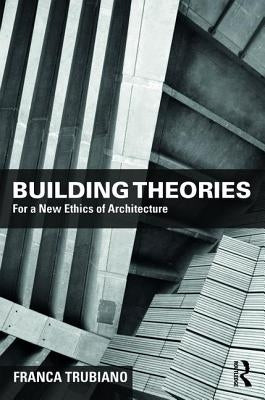Before you leave...
Take 20% off your first order
20% off
Enter the code below at checkout to get 20% off your first order
Discover summer reading lists for all ages & interests!
Find Your Next Read

Building Theories speaks to the value of words in architecture. It addresses the author's fascination with the voices of architects, engineers, builders, and craftspeople whose ideas about building have been captured in text. It discusses the content of treatises, essays, articles, and letters by those who have been, throughout history, committed to the art of building. In this, Building Theories argues for the return of a practice of architectural theory that is set amongst building, buildings, and builders. This journey of close reading reinterprets the words of Vitruvius, Alberti, de L'Orme, Le Camus de Mézières, Boullée, Laugier, Rondelet, Semper, Viollet-le-Duc, Hübsch, Bötticher, Berlage, Muthesius, Wagner, Behrendt, Gropius, and Arup. With chapters dedicated to texts from antiquity, the Renaissance, and the nineteenth century, and with a critical eye on architectural theory popularized in the Anglo-Saxon world post-1968, readers are introduced to a wider, more inclusive definition of architectural ideas. Building Theories considers how contemporary scholarship has steered away from the topic of building in its reluctance to admit that both design and construction are central to its concerns. In response, it argues for a realignment of architecture with the concept of techné, with a dual commitment to fabrica e ratio, with a productive return to l'art de bien bastir, with the accurate translation of the term Baukunst, and with an appeal to the architect's 'composite mind.' Students, practitioners, and educators will identify in Building Theories ways of thinking that strive for the integration of design with construction; reject the supposed primacy of the former over the latter; recognize how aesthetics are an insufficient scaffold for subtending the subject of architectural ethics; and accept, without reservation, that material transformations have always been at the origins of built form.
Franca Trubiano is Associate Professor and Graduate Group Chair of the PhD program in Architecture at the Weitzman School of Design of the University of Pennsylvania and a licensed architect with the Ordre des Architectes du Québec. She received graduate and post-graduate degrees from McGill University and a doctorate in the history and theory of architecture from the University of Pennsylvania. Previous publications include Women [Re]Build: Stories, Polemics, Futures (ORO, 2019) and Design and Construction of High-Performance Homes: Building Envelopes, Renewable Energies and Integrated Practice (Routledge, 2013). She teaches and conducts research on forced labor in the built environment, emerging materials and human health, tectonic theories, integrated design, and architectural ecologies.
Thanks for subscribing!
This email has been registered!
Take 20% off your first order
Enter the code below at checkout to get 20% off your first order